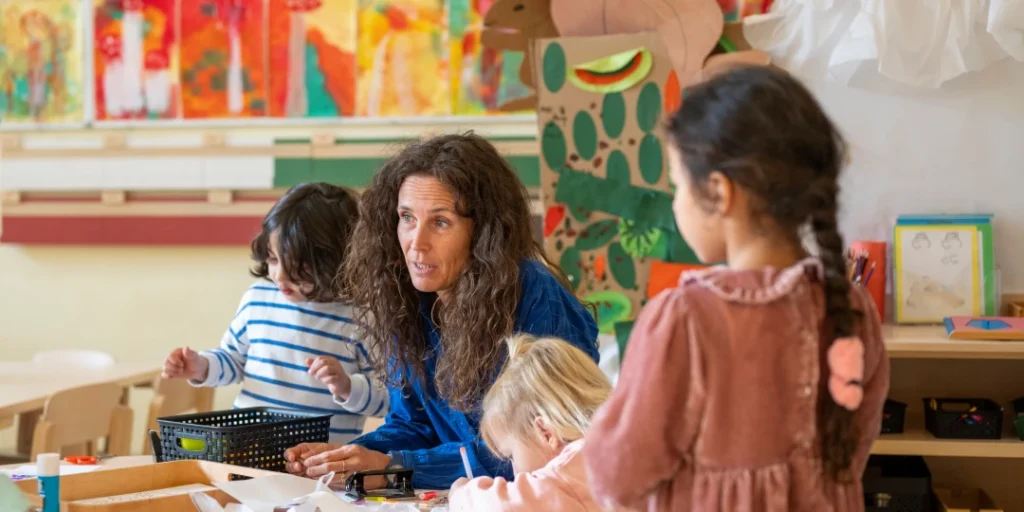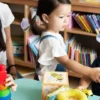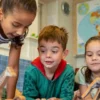![Play, Learn, Thrive: How Hermitage Hills Day School Prepares Young Learners for Lifelong Success Introduction: Where the Journey to Lifelong Learning Begins Hermitage Hills Day School represents more than just the first step in a child’s academic path—it is the birthplace of their identity […]](https://dayschools.org/hermitage/wp-content/uploads/sites/5/2024/03/day-school-11.webp)
Table of Contents
Introduction: Where the Journey to Lifelong Learning Begins
Hermitage Hills Day School represents more than just the first step in a child’s academic path—it is the birthplace of their identity as a learner. The school creates an environment where education is not imposed, but ignited. Within its thoughtfully curated spaces, children are encouraged to explore, question, and imagine, forming neural pathways that will support higher learning for years to come. The educators approach every child as a unique individual, guiding them through experiences that are both enriching and developmentally aligned.
At Hermitage Hills Day School, the early years are treated not as a transitional phase, but as the cornerstone of a child’s cognitive and emotional architecture. Every story read aloud, every question posed during circle time, and every cooperative game in the outdoor play area is designed to encourage intellectual curiosity and social dexterity. The school’s philosophy is rooted in the understanding that the earliest experiences are the most influential, setting the tone for how a child perceives learning, relationships, and self-worth.
The school does not measure success merely by academic benchmarks. Instead, Hermitage Hills Day School defines success through a broader, deeper lens—developing children who think critically, act kindly, and adapt skillfully to change. This vision is evident in the way teachers engage with students, the rhythm of the day, and the integration of social-emotional learning into every subject. It is a place where the academic, personal, and social threads of development are interwoven into a tapestry of lifelong success.
Embracing the Power of Purposeful Play
At Hermitage Hills Day School, play is not a diversion from learning—it is the very heartbeat of it. The school recognizes that when children are deeply engaged in meaningful play, their brains are firing on all cylinders. This isn’t idle activity; it’s a sophisticated, brain-based learning method backed by modern neuroscience and decades of research in developmental psychology. Play is where cognitive frameworks are constructed, language is expanded, and social understanding is refined.
The daily rhythm at Hermitage Hills Day School includes a deliberate balance of teacher-guided and child-initiated play. In one corner, children may be constructing intricate structures using blocks, instinctively applying principles of engineering and spatial awareness. In another, dramatic play areas allow students to assume roles, invent dialogue, and practice emotional regulation. These seemingly simple activities are rich in skill-building, from impulse control to strategic thinking and collaborative negotiation.
What sets Hermitage Hills Day School apart is the intentionality behind every play-based experience. Teachers are not passive observers—they are trained to recognize the learning within play and subtly extend it. Whether by asking open-ended questions, introducing new vocabulary, or challenging a child to think one step further, educators scaffold play in ways that elevate it from mere amusement to a transformative educational tool. In this environment, play becomes the vehicle through which children gain the confidence, competence, and curiosity needed to thrive well beyond the preschool years.

Developing Critical Thinking Through Experiential Learning
Hermitage Hills Day School believes that young learners are capable of far more than rote repetition or passive absorption. The school embraces experiential learning as a powerful catalyst for intellectual growth, allowing children to engage directly with the world around them. Rather than simply telling children how things work, the curriculum invites them to explore, test, and construct understanding through firsthand discovery. This immersive approach transforms the classroom into a living laboratory where thought and action converge.
Whether it’s a science experiment involving water flow, a math activity measuring classroom objects, or a nature walk to study local ecosystems, students at Hermitage Hills Day School are consistently encouraged to ask questions and form hypotheses. These activities are not just enriching—they are essential. Experiential learning fosters metacognition, helping children begin to think about how they think. They begin to draw connections, revise ideas, and develop a sophisticated understanding of cause and effect, far beyond what traditional instruction might yield.
The result is a classroom culture where curiosity is rewarded and failure is reframed as part of the learning journey. Children are not penalized for getting something wrong; instead, they are guided to explore why an approach didn’t work and how they might adjust their thinking. This iterative process develops resilience, flexibility, and a habit of critical inquiry—qualities that form the bedrock of intellectual independence and future academic achievement.
Cultivating Emotional Intelligence from an Early Age
Emotional development is not treated as peripheral at Hermitage Hills Day School—it is central to every aspect of the educational experience. The school recognizes that emotional intelligence is a core determinant of lifelong success, often surpassing traditional academic metrics in its impact. From the moment a child enters the classroom, they are immersed in an environment that prioritizes empathy, emotional expression, and respectful communication.
Through carefully designed social-emotional learning frameworks, children at Hermitage Hills Day School learn to identify their feelings, understand their triggers, and choose constructive responses. Teachers model emotional literacy by naming their own emotions and narrating healthy coping strategies. Conflict is handled with intentionality—rather than simply correcting behavior, educators guide children in peer mediation, perspective-taking, and resolution. This process empowers young learners to not only understand their own emotional states but to navigate the emotions of others with compassion.
In group settings, children participate in activities designed to foster collaboration, kindness, and shared responsibility. Whether through cooperative games, storytelling circles, or group projects, students learn to listen, share, and lead. This consistent reinforcement of social values creates a classroom culture rooted in trust and mutual respect. At Hermitage Hills Day School, emotional intelligence is not a future goal—it is a daily practice, shaping children into grounded, emotionally aware individuals who thrive in both personal and academic settings.
Creating a Balanced Structure with Room for Creativity
At Hermitage Hills Day School, structure and creativity are not opposing forces—they are essential partners in early childhood education. The school understands that children flourish when their day follows a predictable rhythm, yet still allows for ample exploration and self-expression. The daily schedule is thoughtfully designed to provide comfort through consistency while encouraging spontaneity and imaginative thinking within that structure.
Routine elements such as morning meetings, snack times, and transition cues provide a sense of order that helps children feel secure and confident. This reliable framework supports the development of executive functioning skills like planning, attention control, and task persistence. Within this structure, however, children are frequently given choices—where to play, what to explore, and how to express their ideas. These decisions help build autonomy and intrinsic motivation.
Creative expression is not limited to art or music; it is woven into every subject area. A math lesson might involve designing patterns with colorful beads, while a literacy activity could include composing stories with puppets. Teachers create opportunities for divergent thinking, encouraging students to approach problems from multiple angles and to take pride in their originality. At Hermitage Hills Day School, structure provides the foundation, but it is creativity that brings learning to life—fueling innovation, joy, and a sense of ownership over one’s own educational path.

An Integrated Curriculum that Enriches Every Domain
At Hermitage Hills Day School, education is not compartmentalized. Instead, it is approached through an integrated curriculum that reflects the interconnectedness of real life. Subjects are woven together thematically and developmentally, enabling children to make meaningful connections across multiple domains. This approach respects the holistic nature of how young minds learn—through context, narrative, and purposeful engagement with the world around them.
Rather than teaching reading, science, or math in isolation, educators design multi-sensory experiences that draw from all disciplines. A thematic unit on “gardens,” for example, may involve reading picture books about plants, measuring and charting seed growth, painting sunflowers, and exploring the role of pollinators through dramatic play. These interdisciplinary explorations support comprehension, retention, and higher-order thinking, while also catering to a variety of learning styles.
This integrated approach allows Hermitage Hills Day School to remain academically rigorous while preserving a sense of wonder. Children don’t just learn facts—they experience them. They begin to understand not just what they are learning, but why it matters. This fosters a deeper investment in the learning process and equips students with the cognitive flexibility to apply knowledge in novel situations. In this way, the school not only prepares children for future academic demands but nurtures thinkers capable of seeing the bigger picture.
Empowering Educators as Learning Architects
Educators at Hermitage Hills Day School play a role that transcends instruction—they are the architects of a child’s earliest experiences with formal learning. Each teacher is entrusted not only with delivering curriculum but with shaping the emotional climate and intellectual energy of the classroom. Their presence is intentional, their methods reflective, and their impact enduring.
The school invests heavily in hiring and developing educators who are not only credentialed but deeply passionate about early childhood development. These professionals are trained to observe children with precision, interpret behavior with empathy, and tailor learning experiences to suit individual needs. A child struggling with transitions, for example, is gently coached through visual cues and predictable routines. A budding scientist is given magnifying tools and open-ended questions that spark further inquiry. This adaptive, responsive teaching style ensures that every child receives both challenge and support.
Professional development is not a once-a-year obligation—it is a continuous commitment. Teachers at Hermitage Hills Day School participate in workshops, peer coaching, and reflective practice groups that deepen their pedagogical expertise. This culture of growth among faculty mirrors the growth expected of students and contributes to an environment where innovation, collaboration, and excellence flourish. The result is a team of educators who are not merely managing classrooms but intentionally shaping futures.
Designing Environments That Inspire Discovery
The learning spaces at Hermitage Hills Day School are meticulously designed to reflect the school’s commitment to exploration, autonomy, and sensory engagement. The environment is not treated as a backdrop to learning—it is an active participant. Every room, surface, and corner is curated to invite curiosity and deepen engagement, turning each day into an adventure of self-directed discovery.
Classrooms are divided into intentional zones, such as a literacy corner, a construction area, an art atelier, and a science station. Materials are rotated regularly to align with developmental goals and emerging interests. Natural elements—wood, fabric, stones, and plants—are favored over synthetic ones to create a warm, calming atmosphere that encourages focused play and tactile exploration. Even the furniture is child-scaled, reinforcing a sense of belonging and capability.
The outdoors is treated as an extension of the classroom. Gardens, water features, climbing structures, and nature trails provide endless opportunities for inquiry-based learning and physical development. Children might investigate insect habitats, measure rainfall, or simply observe seasonal changes—all while building a connection to the natural world. These environments support physical, emotional, and intellectual growth by promoting movement, imagination, and a profound sense of wonder. At Hermitage Hills Day School, the setting is not just where learning happens—it’s how it happens.
Engaging Parents as Partners in Growth
Hermitage Hills Day School views the relationship between home and school as a vital alliance, not a passive association. From a child’s first day, parents are invited into a collaborative journey where mutual trust and transparent communication form the bedrock of shared success. The school’s approach is rooted in the belief that when families and educators work in harmony, children benefit from a seamless, consistent support system that reinforces their learning and development.
This partnership is cultivated through open, ongoing dialogue. Parents receive regular updates not just on academic progress, but on social growth, emotional milestones, and behavioral patterns. Daily reports, portfolio reviews, and personalized parent-teacher conferences provide a comprehensive view of each child’s development. Educators make it a priority to listen actively and respond thoughtfully, creating a two-way flow of information that values parental insight as much as professional expertise.
Beyond communication, Hermitage Hills Day School also creates meaningful opportunities for parents to participate in the life of the school. Family workshops, classroom volunteering, curriculum showcases, and community events allow parents to witness firsthand the philosophy and pedagogy at work. These moments strengthen the sense of belonging and investment, reminding families that they are not observers but integral members of a unified educational team. In this environment of cooperation, every child is supported by a circle of care that extends far beyond the classroom walls.

Tracking Progress Beyond Standard Milestones
Growth at Hermitage Hills Day School is viewed through a wide lens—one that appreciates both visible achievements and subtle developmental gains. Rather than relying solely on traditional benchmarks, the school utilizes a multifaceted approach to assessment that captures the richness of early learning. Academic progress, social-emotional development, problem-solving abilities, and self-regulation are all documented with precision and care.
Educators employ tools such as anecdotal observations, developmental checklists, student portfolios, and work samples to build a holistic profile of each child. These insights are not merely recorded—they are reflected upon, discussed in team meetings, and used to inform individualized learning strategies. If a child demonstrates advanced curiosity in science, additional provocations are introduced. If another is navigating challenges with peer interactions, social stories and role-play are woven into the day.
Parents benefit from detailed and nuanced feedback that goes beyond “meeting expectations” or “needs improvement.” They receive narratives that celebrate their child’s voice, illustrate their growth, and spotlight areas for further nurturing. This approach affirms that development is not a race to meet arbitrary standards but a complex, beautiful unfolding that deserves careful observation and thoughtful support. At Hermitage Hills Day School, progress is measured not just in numbers, but in character, confidence, and joy in learning.
Conclusion: Preparing Confident, Compassionate, Curious Minds
Hermitage Hills Day School is more than an educational institution—it is a carefully cultivated environment where young children are empowered to become their truest, most capable selves. Every element of the school, from its play-based philosophy to its nurturing educators and intentional learning spaces, is designed with a singular purpose: to prepare children not just for school, but for life. Here, curiosity is encouraged, individuality is honored, and growth is celebrated in all its forms.
The school’s holistic approach ensures that each child is equipped with more than academic readiness. They leave with emotional intelligence, social awareness, creative resilience, and a lifelong love of learning. These are not incidental outcomes—they are the result of deliberate, thoughtful practice embedded into every interaction and experience. At Hermitage Hills Day School, children are not molded to fit a predefined path—they are guided to forge their own with confidence and joy.
As families consider the formative years of their child’s education, Hermitage Hills Day School stands as a beacon of excellence, integrity, and possibility. It is a place where children are seen, heard, and deeply understood. And most importantly, it is a place where they begin to thrive—not just for the moment, but for a lifetime.






